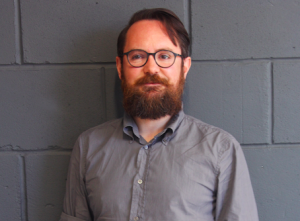This week we reflect back on the year in digital and look ahead to three trends for digital in 2015.
It’s that time of year again when us agency folk are speculating about what brands will be looking at next year. So, (not breaking with tradition) I thought I’d follow the trend and write my latest post on my predictions on trends for digital in 2015. I also thought I’d demystify why we do this every year.
Firstly, we want to tell you what we’ve got in mind for the next 12 months. Although, as DVO’s clients will know, forward thinking in digital should be a central part of any strategically-led full service digital agency proposition. In fact it’s crucial to be evaluating new developments, technology and platforms as they arise, and making smart decisions about how or even if they have relevance to the brand’s goals and customers. There is also a bit of shameful steering going on. These are uncertain times, and if I tell you that the three things you should be focusing on are X, Y and Z, then you may well believe me.
With that in mind, here are my top three things to concentrate on in 2015:
Change Management
It seems brands are still struggling with the transition to the new way of thinking. They need to figure out how to respond to demands that a technologically enabled, connected consumer is placing on their brand and its marketing function.
With the death of advertising, strategy defined and developed over 50-60 years, which brands have aligning marketing around, means change is not going to happen overnight.
I’ve been very lucky in my career to have witnessed the impact really strong CRM has made on businesses. The integration of this kind of technology allowed for a more complete picture of a customer, prospect, and their journey, which resulted in some truly ground-breaking steps. Especially around new product, and services development.
However, the change to incorporate this often meant a realignment of the marketing and business to a model that was inherently more customer centric. What has changed this time is consumer behaviour. Technology has driven this, and how a brand deals with this, and how they adapt to tap into this will be key. Therefore the CMO will need to be acutely aware of how that change is managed.
Acting Like Entrepreneurs
The smart thinkers in marketing look ahead and see the development of products and experiences that sit side by side in a brand’s portfolio of products. This puts a huge emphasis on R&D and means brands need to start thinking a bit like entrepreneurs, evaluating these ideas much like a savvy seed investor would do. It’ll be important for brands to work out how they can partner with and incubate the sort of people who innovate new ideas for a living. Will this even be agencies?
Customer Journey
I think this will be something on most people’s agenda as they start to think hard about how they can better understand how consumers behave, and the touch-points that matter.
The media landscape has been changed forever by digital. It’s everywhere; the thing that binds us all together. But, man, is it complicated.
Tapping into this will reap huge benefits for brands. For DVO it’s about making media much more of a strategic element of our work from the very start of campaigns, rather than at the activation stage.
It’ll be extremely interesting to see what happens through 2015 and whether my trends for digital come true. At present, we’re working hard on our next stage of evolution, which will undoubtedly involve the above.
*Update 2017 (written with a very smug smile)
So it looks like these trends for digital were largely on the money. Change management has become a central theme for most organisations looking to be more digital. Interestingly brands have begun to realise that culture and strategy are the key drivers not software.
The entrepreneurial spirit lives on. More and more organisations are looking to agile entrepreneurial ways of working. Why? Because things get done faster, with less red tape.
Customer journey has become central to most brands evolution to experience led marketing. Technology and specifically data is helping us to better understand our customers all the time. Specifically we are now able to use data to map customer journey more effectively and plan our marketing accordingly. This allows brands to shape the entire customer experience improving the interaction between brand and consumer, making it more personal and better aligned with the reality of their behaviour.







